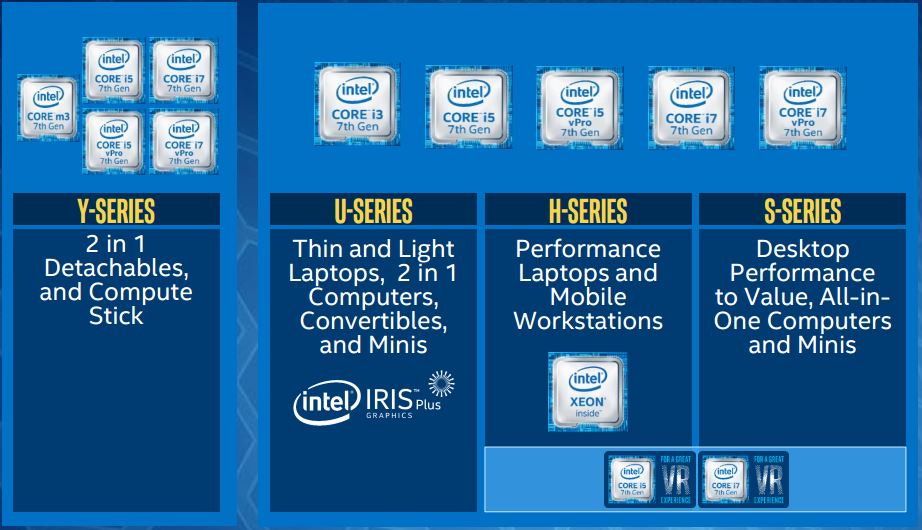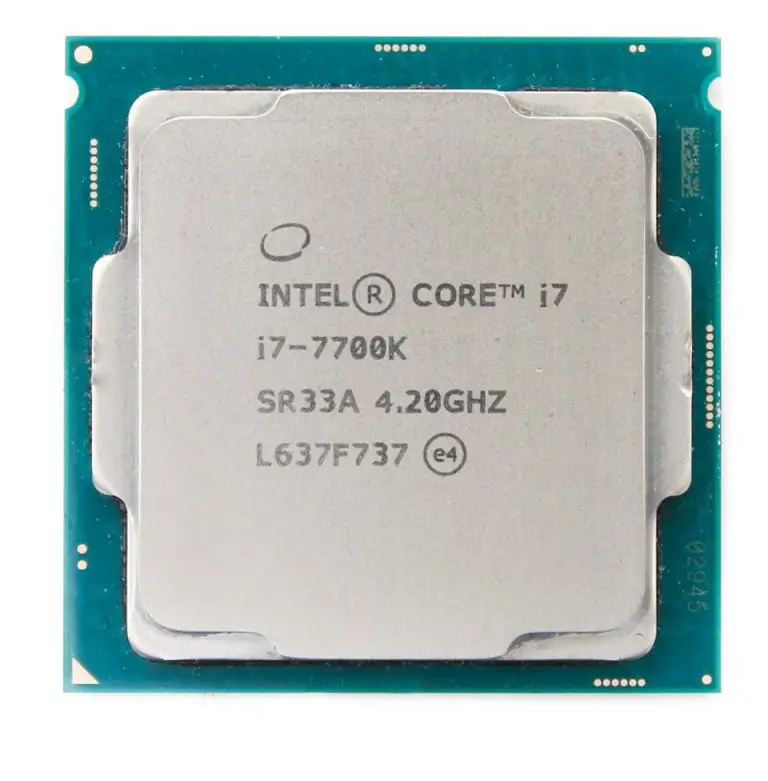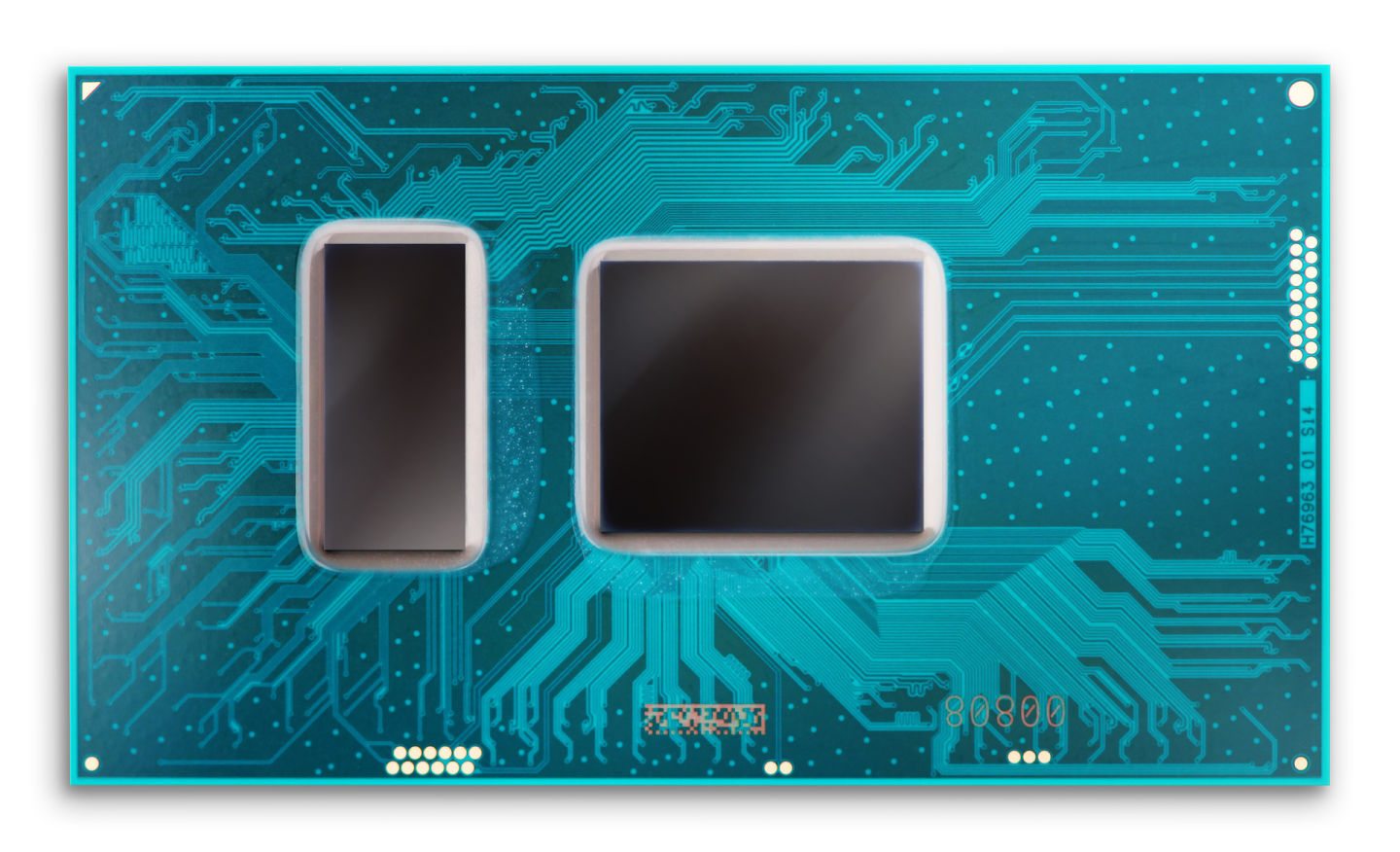
Intel’s other 7th generation SKUs show slightly larger gaps - the Core i5-7600K (3.8GHz base, 4.2GHz Turbo) has a 9% higher base clock and an 8% higher boost clock than the Core i5-6600K (3.5GHz base, 3.9GHz Turbo). On paper, the Core i7-7700K is only 5% and 7% faster than the 6700K in terms of base clock and turbo clock, but the practical results we saw showed a larger clock gap in practice. That compares well against the Core i7-6700K (4GHz base, 4.2GHz Turbo), particularly since our 6700K refused to budge above 4GHz under load, despite plenty of thermal and power headroom.
#Kaby lake procssor full
The Core i7-7700K we’ll be reviewing today has a base clock of 4.2GHz and a maximum turbo frequency of 4.5GHz (our chip topped out at 4.4GHz under full load). The chip will also allow for improved transition into and out-of clock states (Intel calls this Speed Shift Technology, as shown below). H.265 Main10 and VP9 8-bit and 10-bit are now fully supported in hardware (encode and decode) which will significantly reduce power consumption when playing content encoded in these formats. As we’ve previously discussed, Kaby Lake is built on a new second-generation 14nm process node with a predicted 12% performance increase. Intel is launching a number of Core i3, i5, and i7 desktop CPUs today, but the cores themselves are only modestly different than what we saw with Skylake back in 2015. Some vendors may include support for this option, either by integrating third-party controllers or by using Intel’s Alpine Ridge Thunderbolt 3 solution, which also offers USB 3.1 Gen 2 support.

Gen 2 offers transfer speeds of up to 10Gb/s, but Intel hasn’t built a native controller capable of operating at these clock speeds.

One notable missing feature? USB 3.1 Gen 2 support. Optane memory (which means DIMMs) will only be available for Z270 chipsets, while Optane SSDs should be compatible with other platforms that support whatever standard Intel decides to ship. The company has not clarified what interface its SSD drives will use, or if it intends to offer SATA, PCI-Express cards, or M.2-compatible chips. Intel Optane memory support: According to Intel, Optane will be available both as main memory and as the storage medium of choice for SSDs.
#Kaby lake procssor update
4K playback also requires at least the Anniversary Update of Windows 10 and is currently only available via Microsoft Edge. Let’s take a look at what we’ve got to talk about - first the platform, followed by the CPU and its performance.ĤK content streaming: 4K streaming is limited to Z270 boards and Kaby Lake CPUs, either because Intel only implemented full support for Microsoft’s PlayReady 3.0 in its latest chips, or because only the 7th generation family supports hardware accelerated decode for 10-bit HEVC. Put it all together, and this CPU launch is going to matter more than most. The Core i7-7700K also has the distinction of being the last chip generation Intel will launch before AMD’s own Ryzen (née Zen) architecture debuts later this quarter, and you can bet AMD will be watching these results very closely when it comes to calibrating the speeds and feeds of their own CPU core. It’s also the first Intel processor to support new Optane SSDs, provided the appropriate chipset is used (more on that later).

This is the second iteration of the Skylake core, but it’s implemented on an advanced 14nm node, as Intel disclosed earlier this year.

This is the first new big-core processor since Intel switched from Tick-Tock, which alternated new process nodes with new architectures, to a three-step Process-Architecture-Optimization strategy. It’s been roughly five years since Intel last delivered a significant performance leap in a single generation and the Core i7-7700K has a number of challenges riding on its shoulders. Today, Intel is taking the lid off its 7th Generation Core microprocessor family, codenamed Kaby Lake.


 0 kommentar(er)
0 kommentar(er)
